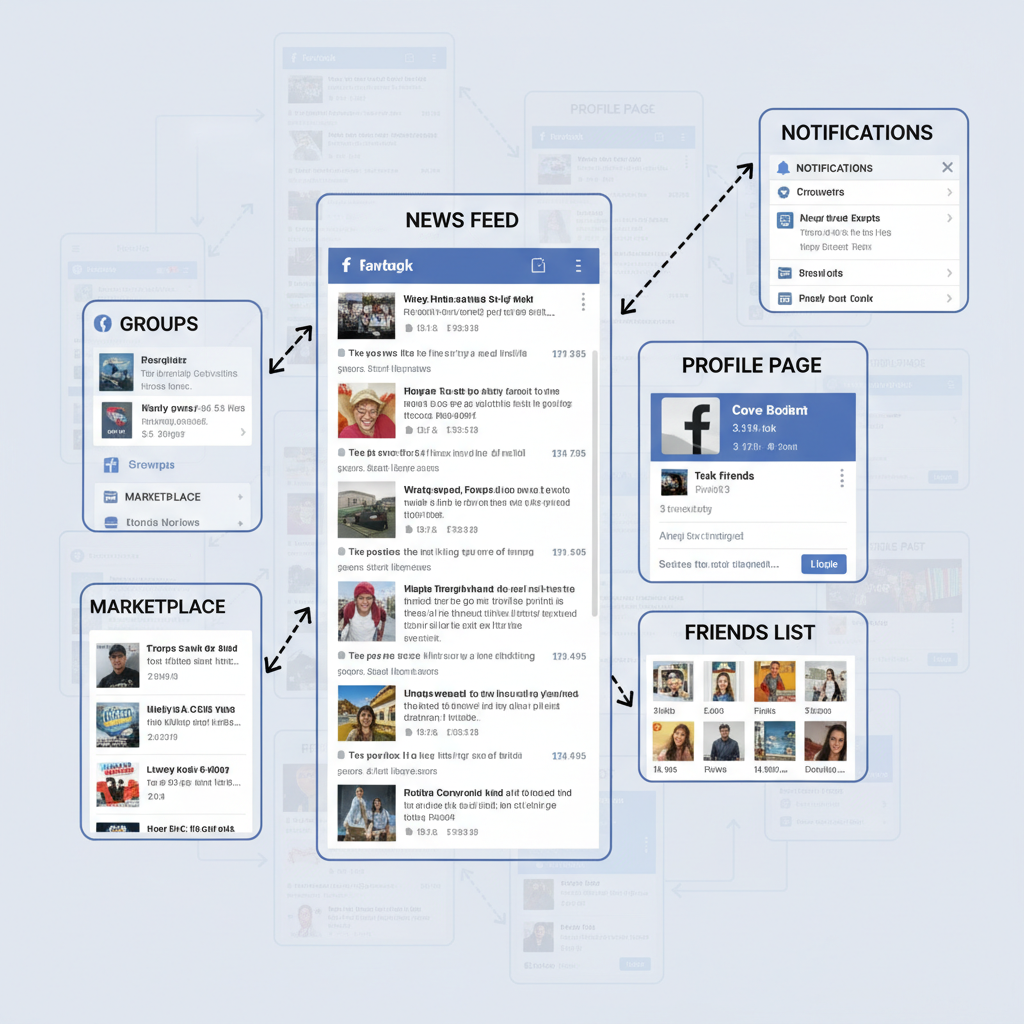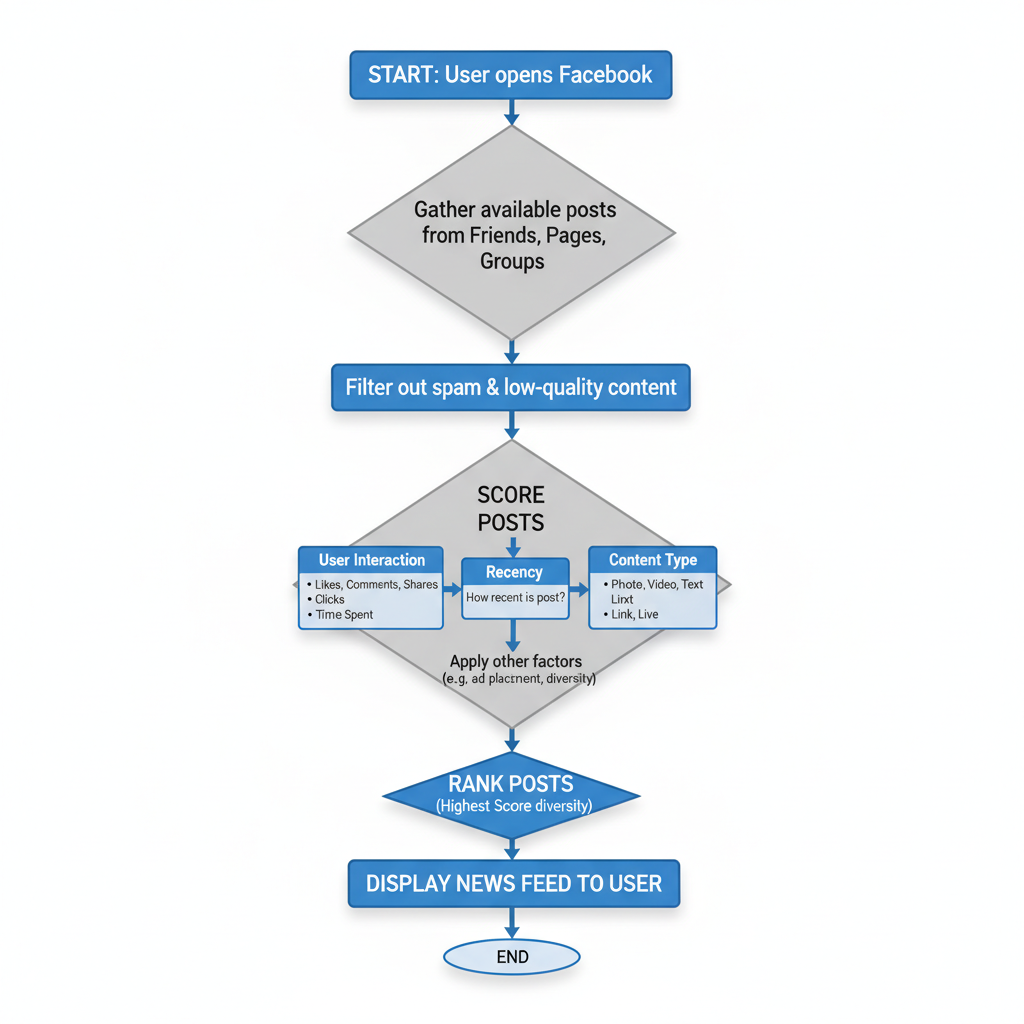How Do Facebook Work for Beginners Guide
Learn how Facebook works with this beginner’s guide covering account setup, interface navigation, news feed algorithm, privacy, and group participation.

How Do Facebook Work for Beginners: Complete Guide
If you’re new to the platform and asking yourself how do Facebook work, you’re not alone. Facebook remains one of the most influential social media networks, connecting billions worldwide. This beginner’s guide covers everything from account creation to privacy settings, algorithms, and tips for safe and effective use—helping you navigate and make the most out of your Facebook experience.

---
A Brief History of Facebook and Its Purpose
Facebook launched in 2004 as a Harvard-only network, founded by Mark Zuckerberg and classmates. Within months, it expanded to other universities, and soon became accessible to the public.
Its mission has always been to connect people—providing a digital platform to share updates, photos, videos, and maintain social connections. Over time, Facebook has incorporated features like Marketplace, live streaming, groups, and business tools, evolving into a multifunctional hub for personal, community, and commercial activities.
---
Creating an Account
Sign-Up Process
- Go to Facebook.com or download the Facebook App from your device’s app store.
- Click Create New Account.
- Enter:
- First and last name
- Mobile number or email address
- Password
- Date of birth
- Gender
- Click Sign Up to proceed.
Account Verification
- Email Verification: Facebook sends you a code to confirm your email.
- Phone Verification: You may get an SMS code to enter into Facebook.
Verification improves security and allows recovery if your password is lost.
---
Understanding the Facebook Interface
Facebook works across web and mobile with some differences in layout, but the core elements stay the same.
Main Sections
- Home: Hub with your News Feed.
- Profile (Timeline): Displays your shared posts and personal information.
- News Feed: Updates from friends, pages, ads, and groups.
- Notifications: Alerts about likes, comments, tags, invitations, and more.

---
How the News Feed Algorithm Works
The how do Facebook work question is closely tied to its algorithm—Facebook doesn’t simply list posts in order.
Key Factors in Content Ranking
- Signals: Who posted, type of content, interaction levels.
- Prediction: The probability you’ll engage with a post based on past activity.
- Score: Assigned to each post to determine placement in your feed.
The algorithm learns from what you like, watch, and share to personalize your experience.
---
Types of Facebook Content
Facebook supports varied content formats, each suited to different engagement styles:
| Type | Description |
|---|---|
| Posts | Text updates, photos, videos, or links shown in the News Feed. |
| Stories | Temporary media lasting 24 hours, used for casual updates. |
| Reels | Short-form, engaging videos similar to TikTok or Instagram Reels. |
| Live | Broadcast real-time video to friends, groups, or the public. |
---
Friending vs Following
Friending
Mutual connection—both can see each other’s posts according to privacy settings.
Following
One-way connection—lets you see someone’s public posts without being friends. Common for celebrities or brands.
Privacy Tip: Regularly check your Friends and Followers settings to manage visibility.
---
Engaging with Posts
Interactivity is central to how Facebook works:
- Like: Quick show of approval.
- Comment: Add your opinion or feedback.
- Share: Post content to your own timeline or send to friends.
- Reactions: Emoji-based responses (Love, Haha, Wow, Sad, Angry).
Higher engagement influences what appears in your feed.
---
Joining and Participating in Groups
Groups are Facebook’s community feature, ideal for shared hobbies, events, or causes.
Group Types:
- Public: Everyone can see posts and members.
- Closed/Private: Approval needed to join, posts visible only to members.
- Secret/Hidden: Exists only to invited members.
Participation includes posting, liking, and commenting under group rules.
---
Creating and Managing Facebook Pages
Pages are public profiles for businesses, organizations, and public figures.
Steps to Create a Page:
- Go to Pages.
- Click Create New Page.
- Add a name, choose a category, and fill in your description.
- Upload profile and cover images.
- Publish posts to attract engagement.
Management Tools:
- Insights: Page analytics and performance data.
- Scheduled Posts: Plan and publish posts automatically.
- Messaging: Communicate directly with followers.
---
Overview of Facebook Marketplace Functionality
Marketplace lets users buy and sell locally.
Features:
- Search listings by location, category, and price.
- Message sellers directly.
- Create listings with photos, descriptions, and price.
Integrated into Facebook’s main navigation for easy access.
---
Facebook Privacy and Security Settings
Privacy and security are essential for safe social networking.
Key Settings
- Two-Factor Authentication (2FA): Adds login security.
- Audience Selector: Choose between Public, Friends, or Only Me.
- Profile Lock: Restrict profile viewing from strangers.
- Blocking: Stop certain users from interacting with you.
Regular privacy checkups help keep your data safe.

---
How Facebook Makes Money
Facebook is free, but operates through monetization strategies.
Revenue Streams
- Advertising: Paid campaigns targeting demographics and interests.
- Sponsored Content: Businesses pay for highlighted placement.
- Data Insights: Aggregated, anonymized user behavior shapes ads (personal info not sold directly).
Understanding these helps you interpret sponsored activity in your feed.
---
Tips for Using Facebook Effectively and Safely
Maximize benefits and minimize risks with these practices:
- Curate Your Friends List: Stick to people you know.
- Use Lists: Segment friends for selective sharing.
- Limit Personal Details: Avoid oversharing sensitive info.
- Stay Updated: Platform features change often.
- Report Suspicious Content: Flag fake accounts and scams promptly.
- Use Privacy Shortcuts: Speed up setting changes.
- Limit Screen Time: Prevent social media fatigue.
---
Final Thoughts and Next Steps
Learning how do Facebook work empowers you to use it strategically—whether for personal connections, group discussions, shopping in Marketplace, or promoting a business page. By understanding the interface, content types, algorithm, and privacy tools, you can enjoy a safer and more tailored experience.
Start exploring Facebook today, but do so mindfully: adjust your settings, engage positively, and utilize the features that align with your goals.



